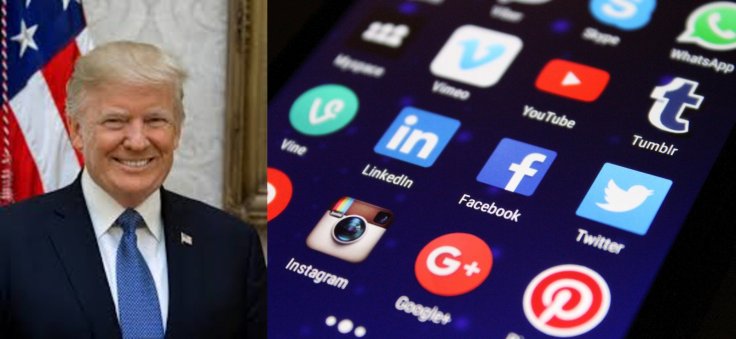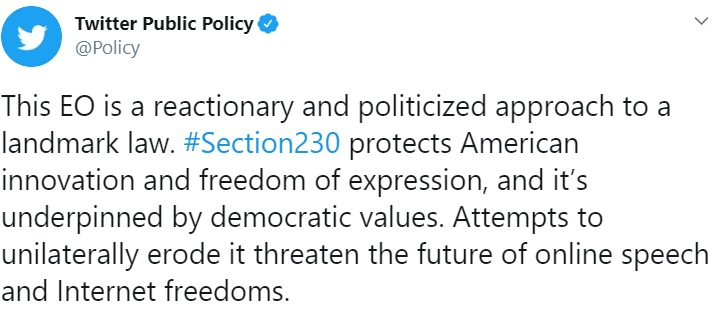U.S. President Donald Trump signed an executive order on Thursday, targeting the social media companies. The order strips these companies of the legal immunity they enjoyed over the content published on their platforms. "A small handful of social media monopolies controls a vast portion of all public and private communications in the United States", Trump said at the Oval Office while signing the order.
According to him, such companies have enjoyed unchecked power to "censor, restrict, edit, shape, hide, alter" any form of communication between private citizens and the public.
Trump's battle against social media companies started after Twitter added factcheck labels under two of his tweets. In these, he claimed that the mail-in ballots would lead be to election fraud. Twitter flagged his tweets and termed them 'unsubstantiated'.
Details of Trump's Social Media Executive Order

The order reinterprets the Communications Decency Act of 1996 which protects social media and other tech companies from lawsuits. Section 230 of the act shields news outlets, video streaming services such as YouTube and social media platforms such as Facebook and Twitter, from legal action over contents posted by the users.
The section has another important element. Tech owners have expressed concerns that they might be sued if they exercised control or any form of censorship over content posted on their platform. Hence, a provision was inserted that allows companies to strike down offensive or objectionable content, as long as they act in "good faith".
The social media order has argued that legal immunity is available to only those companies who operate in "good faith" which social media companies have not, CNN reported. For this, the Commerce Department will ask the Federal Communications Commission (FCC) to clarify when a company violates the 'good faith' provision of Section 230. Once clarified, lawsuits against the companies will get easier.
Changes to Section 230
It has also called on Congress to pass legislation to "remove or change" section 230. Attorney General William Barr will begin formulating the legislation for the Congress to vote on, Trump said.
The order indirectly accuses the platforms of an anti-conservative bias as it has directed the Justice Department to consult with the state attorney generals on allegations of anti-conservative bias. It also bars federal agencies from advertising on platforms that violate the 'good faith' clause of Section 230.
The order directs the Federal Trade Commission (FTC), which is an independent body, to report on instances of political bias collected by the White House and consider suing companies that violate the Trump administration's interpretation of Section 230.
It has also accused Google of helping the Chinese government's surveillance of its citizens, Twitter of spreading Chinese propaganda and Facebook of earning profits through Chinese advertisements.
How Did Social Media Companies React?
Twitter has termed the decision "reactionary and politicized". Unilaterally eroding Section 230 threatens the "future of online speech and Internet freedoms", the statement added.

Facebook spokesman Andy Stone said that a lack of legal immunity over what billions of users say would prompt companies to "censor anything that might offend anyone". Google spokeswoman Riva Sciuto said that erosion of Section 230 will "hurt America's economy and its global leadership on internet freedom".








